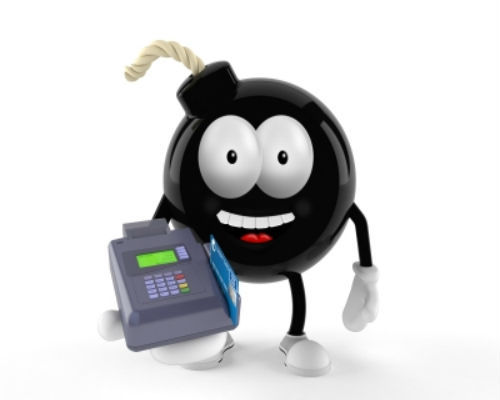
Enough can’t be said on the diligent care one must take when handling a credit card! Sometimes, you may feel that a particular card is not of much use to you, or you may realise that you are holding several credit cards and many of them are not getting used. So you may wish to cancel your credit card. However, you may sometimes realize that despite taking the initiative to cancel the card, you continue to receive statements from the bank declaring that you have unpaid dues in your account. What is the reason behind this? It is possibly because the exact procedure has not been followed in cancelling the card.
Let’s take the case of Satish who had applied for a credit card from ABC Bank about a year ago. 12 months after getting the card, Satish realised that he did not receive much benefits from the card, and it was simply an additional headache to manage. So he decided to cancel the card and adopted the following process while closing his credit card –
Step 1: Satish contacted the customer service desk of the bank by dialling the number given behind the card. He then found out what is the actual amount outstanding in the card.
Step 2: He made an online payment for this amount and cleared all dues in the card account. As the amount was small, he made the payment in one go. Sometimes, the amount outstanding is quite large for an individual to pay it at once. In such a case, make regular payments, either on a weekly or monthly basis and clear the dues. Note that if a monthly payment is made, you will still accrue interest on the balance, and the final payment should include all fees and charges. Satish kept a record of his payment as proof.
Step 3: On making a full payment of the outstanding balance, Satish contacted the customer service desk again and placed a request for cancellation of the card. He made a note of the date and time of the call, as well as the name of the representative who took down the request. Satish also got a request confirmation number, which will be the reference in all future correspondence on the request.
Step 4: Satish then wrote to the credit card company and sought verification that the account has been closed. He mentioned the details of his call with the customer service representative. He sent the letter through Registered Post, so that there is a legal record of the same.
Step 5: After a few weeks, Satish received confirmation from the bank that the credit card has been cancelled and closed. He then proceeded to cut the credit card into small pieces across the magnetic strip. This completes the cancellation process.
Things to keep in mind while cancelling the credit card:
- The first most important thing to remember is that the bank will not cancel your card unless you have paid all dues. This not only includes the expenses you incurred on your card, but also includes all interest, fees and charges on the card. Sometimes, you may cancel your card after the billing date, and as a result, there may be a residue amount which is not reflected in your last statement.
- Most customers feel that some card charges are unfair and proceed to cancel the card without paying these. However, the bank will not cancel the card unless you pay these dues. Further, you will have to continue paying interest and late payment charges on these dues till you settle everything.
- Simply cutting the card at your end and mailing it to the bank will not cancel the card. Insist on getting a written acknowledgement from the bank that the card has been cancelled.
Does closing a credit card affect your credit score?
Closing a credit card can reduce your credit score. This is because you are reducing your overall credit limit by closing a card. As a result, your credit utilization will go up on an overall basis. Assume you have three cards with a total credit limit of Rs.1.5 lakhs and you spend Rs.75,000 in a month. So your credit utilisation is 50%. Now supposing you want to close one of the cards which has a credit limit of Rs.50,000 as you are not using this card – Then your overall credit utilisation will be 75% (75,000/100,000). This can suggest that you are credit hungry in nature.
Does this mean that you should not close unused cards? No. It is better to close unused cards to prevent misuse or fraud. However, if you wish to close more than 1 card, you should do so gradually and not all at once. Further, the older the credit history, the better it is for your credit score. A long track record will help lenders judge your track record and hence determine future behaviour and default chances. Hence you must always look at keeping older credit cards alive, and close the newer ones if the need arises. This is because the history of closed unused cards goes off the report after some years. Remember, if you already have a weak score, then work on improving your score first before proceeding to cancel the cards.
What are the effects if the credit card is not closed properly?
If you do not follow the proper steps in closing the card, there may be a case when there is an outstanding balance on your card. For instance, if you do not get an acknowledgement from the bank, the bank may charge renewal fees which will get showed as unpaid dues, even though you may have cut the card. This will get carried on month after month, attracting penalties. This will automatically affect your credit score, affecting your future prospects of availing a loan. So remember to actively follow up with the lender and get your credit card closed.